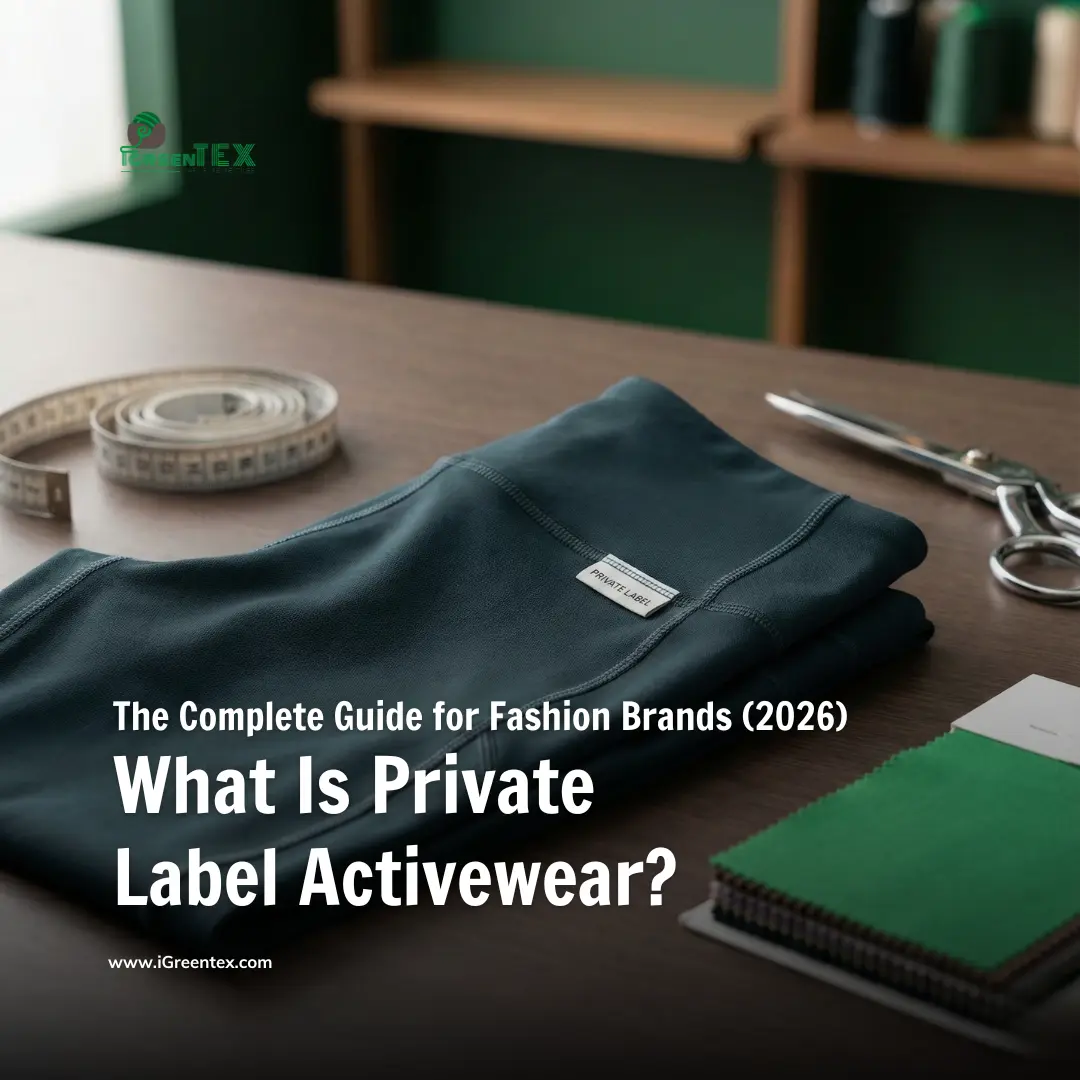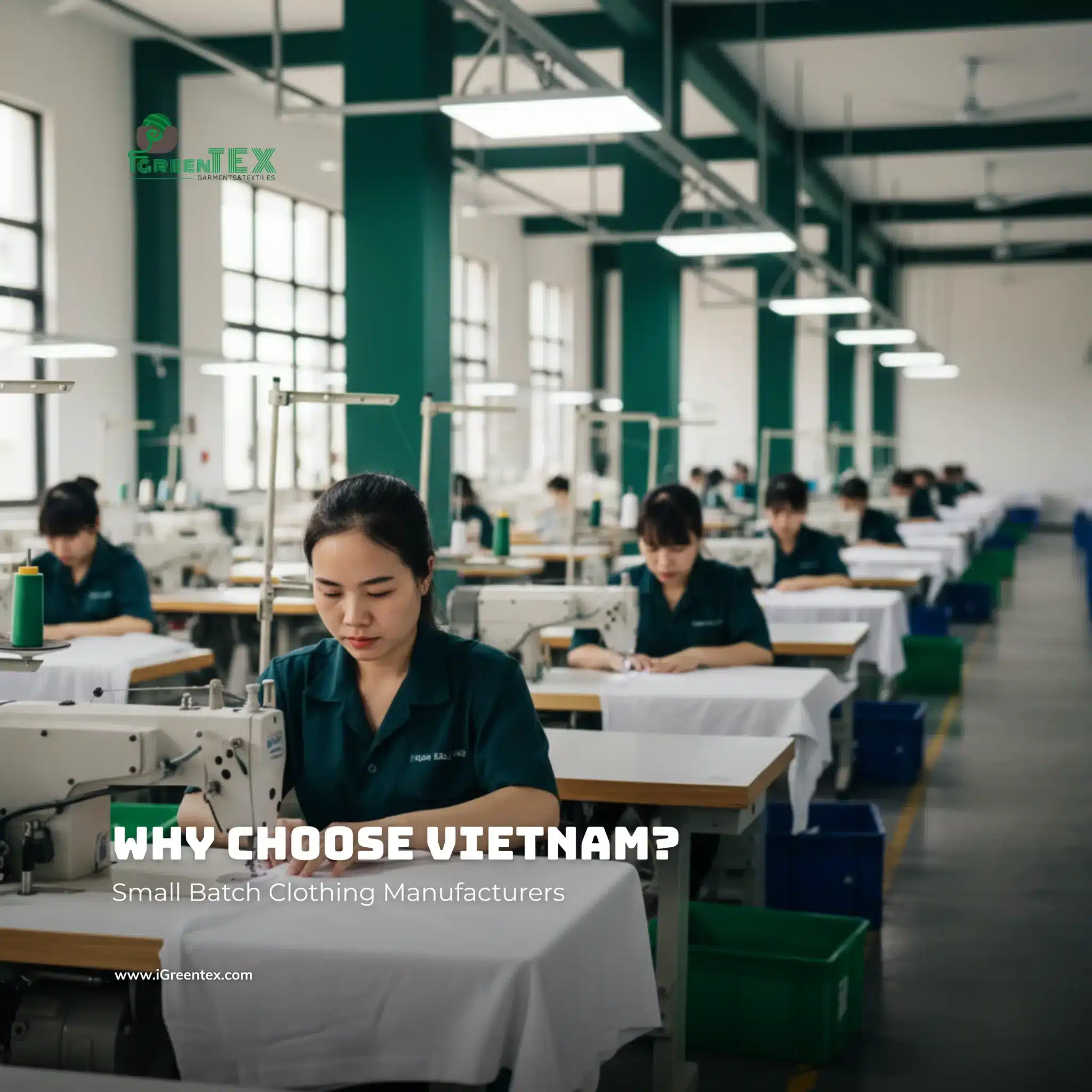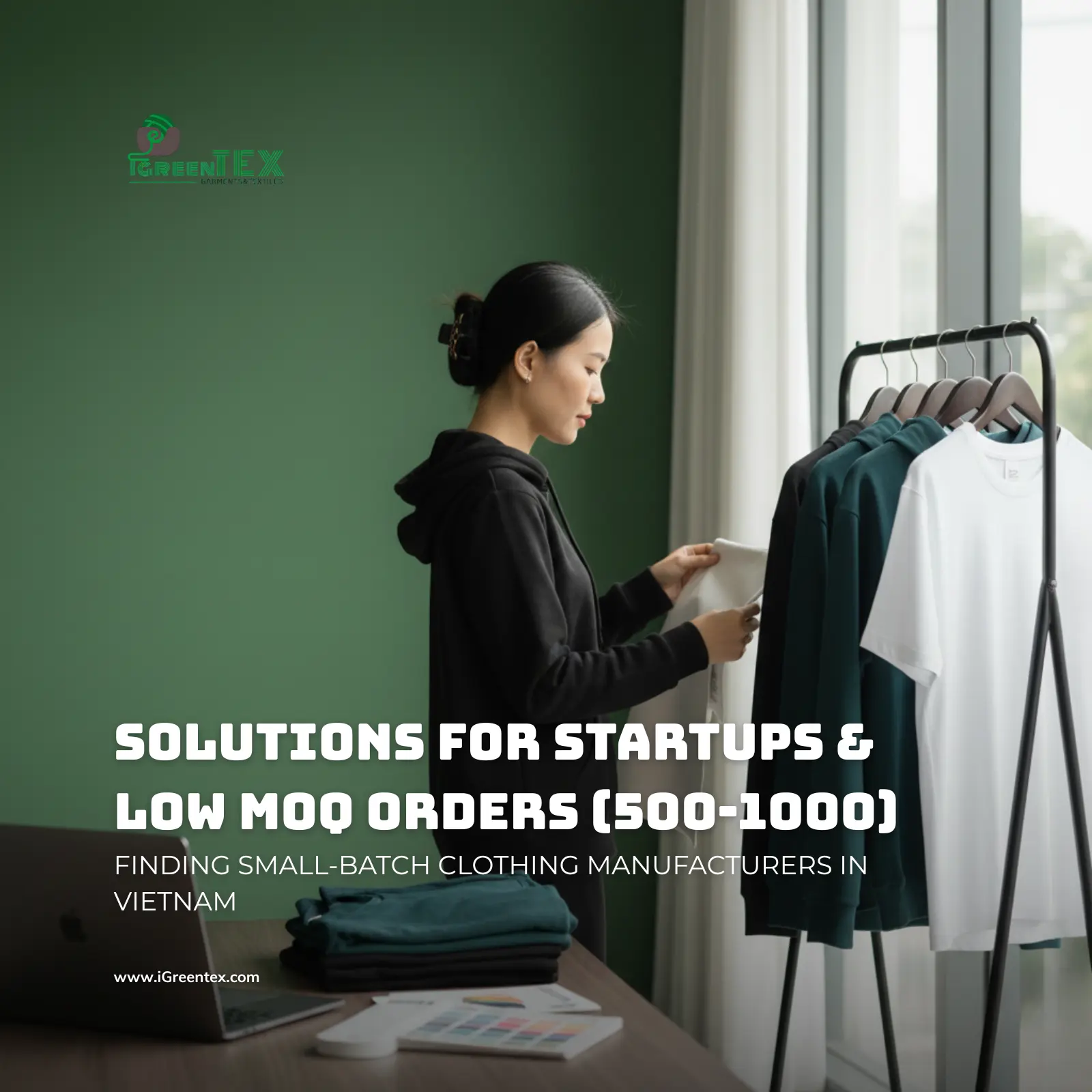- What is a T-Shirt Factory? The Surprising Truth for Brand Owners
- You Think T-Shirt Factory is Just A Big House, Right? But It’s NOT
- The Literal Truth: What Defines a T-Shirt Factory?
- The Technical Truth: The Anatomy of a Professional T-Shirt Factory
- The Material Truth: Why Knit Fabric Expertise is Non-Negotiable
- The Quality Truth: How a Factory Sees Quality in a Simple T-Shirt
- The Production Truth: A Simple T-Shirt’s Journey Through the Factory
- The Human Truth: Skill, Training, and Consistency
What is a T-Shirt Factory? The Surprising Truth for Brand Owners
You Think T-Shirt Factory is Just A Big House, Right? But It’s NOT
When you search for the term “t-shirt factory,” you probably picture a large room. It is filled with sewing machines, making only t-shirts. This definition is correct, but it is dangerously incomplete. This simple view is what leads many new brand owners to choose the wrong partners. It can lead to production delays, poor quality, and endless frustration. The journey to understanding what a t-shirt factory truly is marks the first critical step to building a successful and scalable apparel brand. The wrong choice here can end a brand before it even begins.
The truth is this: a true production facility for t-shirts is not defined by its final product. It is defined by the specialized ecosystem it operates. This includes the specific type of machinery they own. It involves deep expertise in a unique category of materials. It requires a production process engineered for stretch and comfort. Knowing what makes a good t-shirt factory is crucial for your success. It protects your investment and your brand’s reputation.
This article will take you beyond the basic definition. We will move from the literal truth to the technical truth from an insider’s perspective. We will explore the essential machinery that separates a general sewing workshop from a professional t-shirt factory. We will analyze the material science they must master to be successful. Finally, we will show you how to judge the quality of any t-shirt like a seasoned factory expert. This guide will clarify the modern definition of a t-shirt factory and empower you to choose the right partner.
The Literal Truth: What Defines a T-Shirt Factory?
Let’s start with the basic definition. A t-shirt factory is a manufacturing facility that specializes in producing garments from knit fabrics. The manufacturing t-shirt is their primary and most iconic product. But this is where the first surprising truth emerges for many brand owners. The real specialization is not the t-shirt itself. The real specialization is the material: knit fabric. This distinction is the most important thing to understand when asking “What is a t-shirt factory?”.
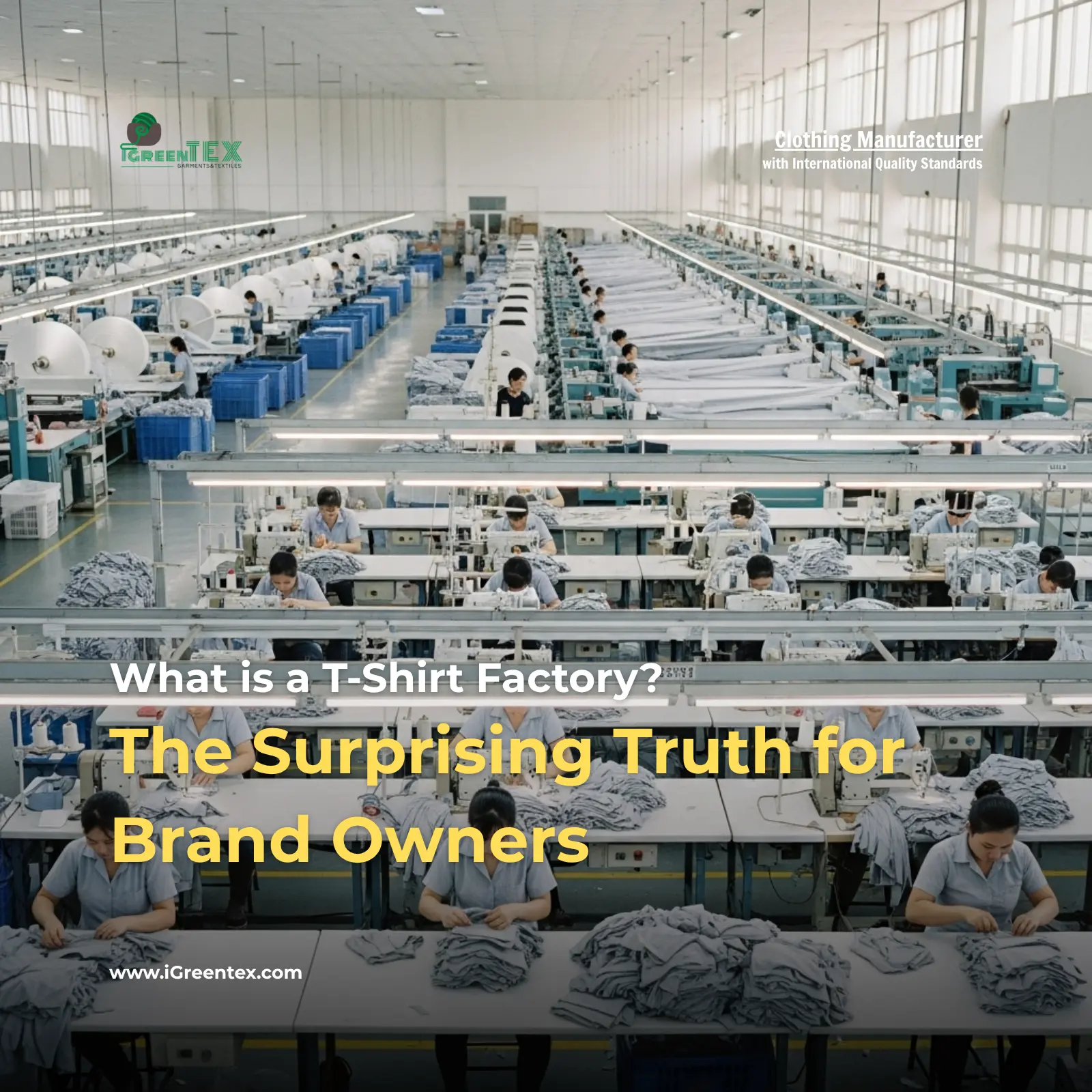
This means a true knitwear specialist rarely only makes t-shirts. Their expertise in these fabrics gives them the capability to produce a whole range of similar products with excellence. This includes polo shirts, hoodies, sweatshirts, tank tops, and joggers. All these products are typically made from knit materials. This is a critical insight for brand owners. A good partner for your t-shirts is also a good partner for your entire knitwear collection. This is a key part of understanding what makes a good t-shirt factory. This capability allows you to scale your product line with a single, trusted partner.
Why does this specialization exist in the first place? The answer lies in the machinery and the required operator skills. The machines required to sew stretchable fabrics are fundamentally different from those used for non-stretch woven fabrics, like the material for a dress shirt or blue jeans. A facility cannot simply switch between these two worlds without significant investment in new equipment, different needles, and extensive operator training. This specialization is the core identity of a true t-shirt factory. Understanding this fundamental divide is the first step to navigating the manufacturing landscape effectively.
The Technical Truth: The Anatomy of a Professional T-Shirt Factory
Now we move deeper into the technical details that separate the amateurs from the professionals. What truly separates a professional t-shirt factory from a general sewing workshop that just happens to make some tees? The answer is in the specific, specialized machinery they have on their production floor. The presence of these machines is a non-negotiable requirement. Without them, a facility cannot produce high-quality knitwear at scale with consistency. When you are vetting a potential partner, asking for a virtual or physical tour to see this equipment is a simple but powerful test. This technical knowledge is vital to truly understanding what is a t-shirt factory.
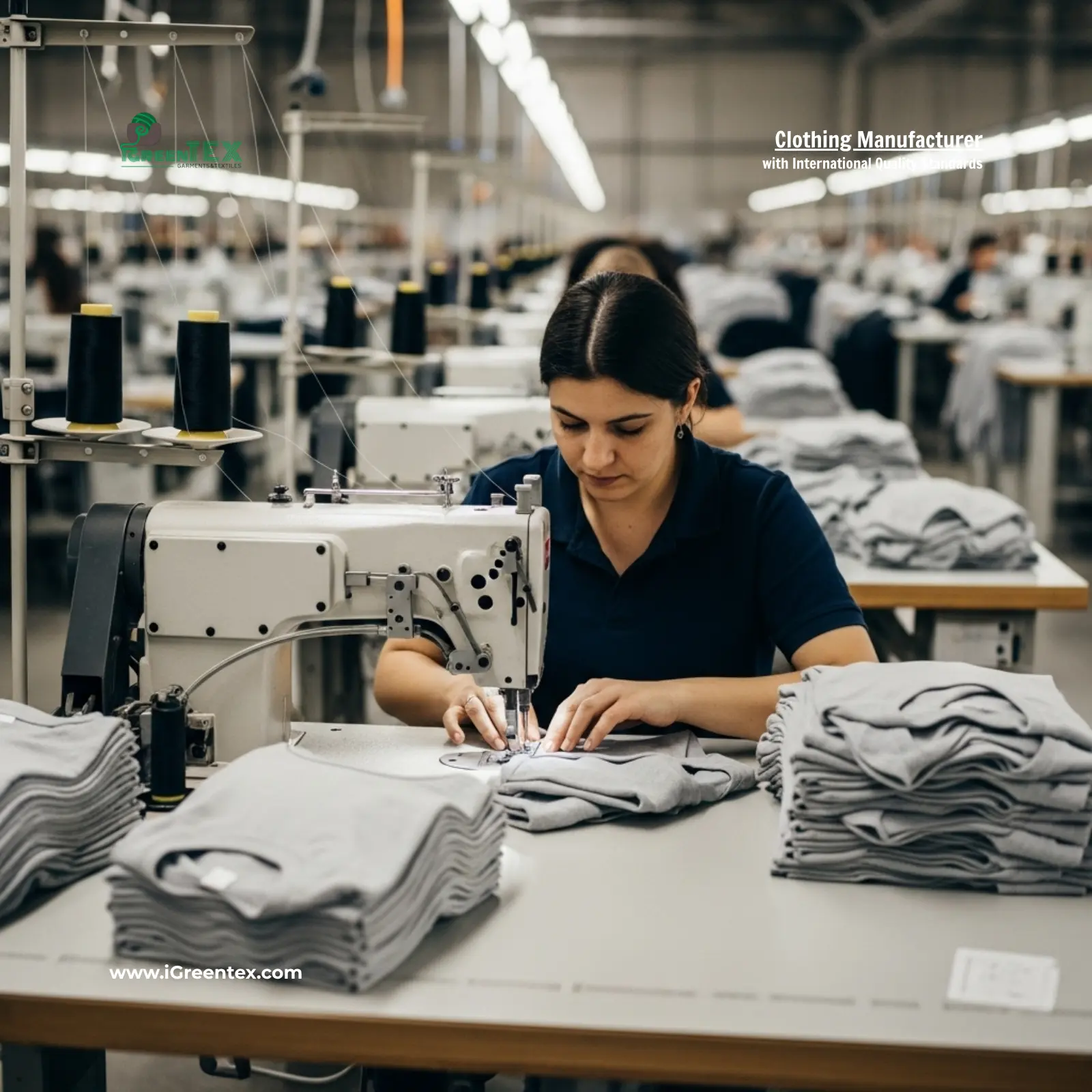
Here is the essential machinery that defines a real knitwear production house. As a brand owner, you should be familiar with these names.
- The Overlock Machine (The Heart of the Factory):
This is the most critical machine for t-shirt production. It is used to join the main seams of the garment, like the side seams and attaching the sleeves. Its unique stitch is designed to stretch with the fabric. This prevents the seams from breaking when you move or stretch the garment. A facility without rows of modern, well-maintained overlock machines is not a real t-shirt factory. It is one of the clearest indicators when learning what makes a good producer. The quality of the overlock stitch is a direct reflection of the factory’s quality standards. - The Coverstitch Machine (The Signature Finish):
Look at the hem of any high-quality t-shirt. You will see two parallel lines of stitching on the outside. On the inside, you will see a complex web of looper stitches. This is made by a coverstitch machine. It creates a durable and flexible hem that stretches with the garment, preventing broken threads. It is also used on sleeve hems. A manufacturer that uses a simple single-needle stitch for hemming is a major red flag. This knowledge is central to understanding what defines a professional t-shirt factory. - The Single-Needle Lockstitch Machine (For Stability):
While most of a t-shirt requires stretch, some parts need stability to maintain their shape. The single-needle machine is used for tasks like attaching the neck rib to the body. It is also used for applying shoulder tape. It creates a strong, stable seam where stretch is not needed. A well-equipped t-shirt factory has the right balance of all three machine types. They are arranged in an efficient production line, or “chuyền.” The garment moves logically from one station to the next, a process called a “progressive bundle system.” This operational excellence is a key part of what makes a good partner.
The Material Truth: Why Knit Fabric Expertise is Non-Negotiable
Owning the right machines is only half the battle. A true t-shirt factory must also possess deep expertise in knit materials. This is another crucial layer in understanding the nature of these producers. Knit fabrics are fundamentally more challenging to work with than woven fabrics. They stretch. They can curl at the edges after being cut. They have complex shrinkage properties that can ruin a production run if not managed properly. A great partner does not just sew fabric; they understand it on a scientific level. This expertise is a hallmark of a top-tier t-shirt factory.
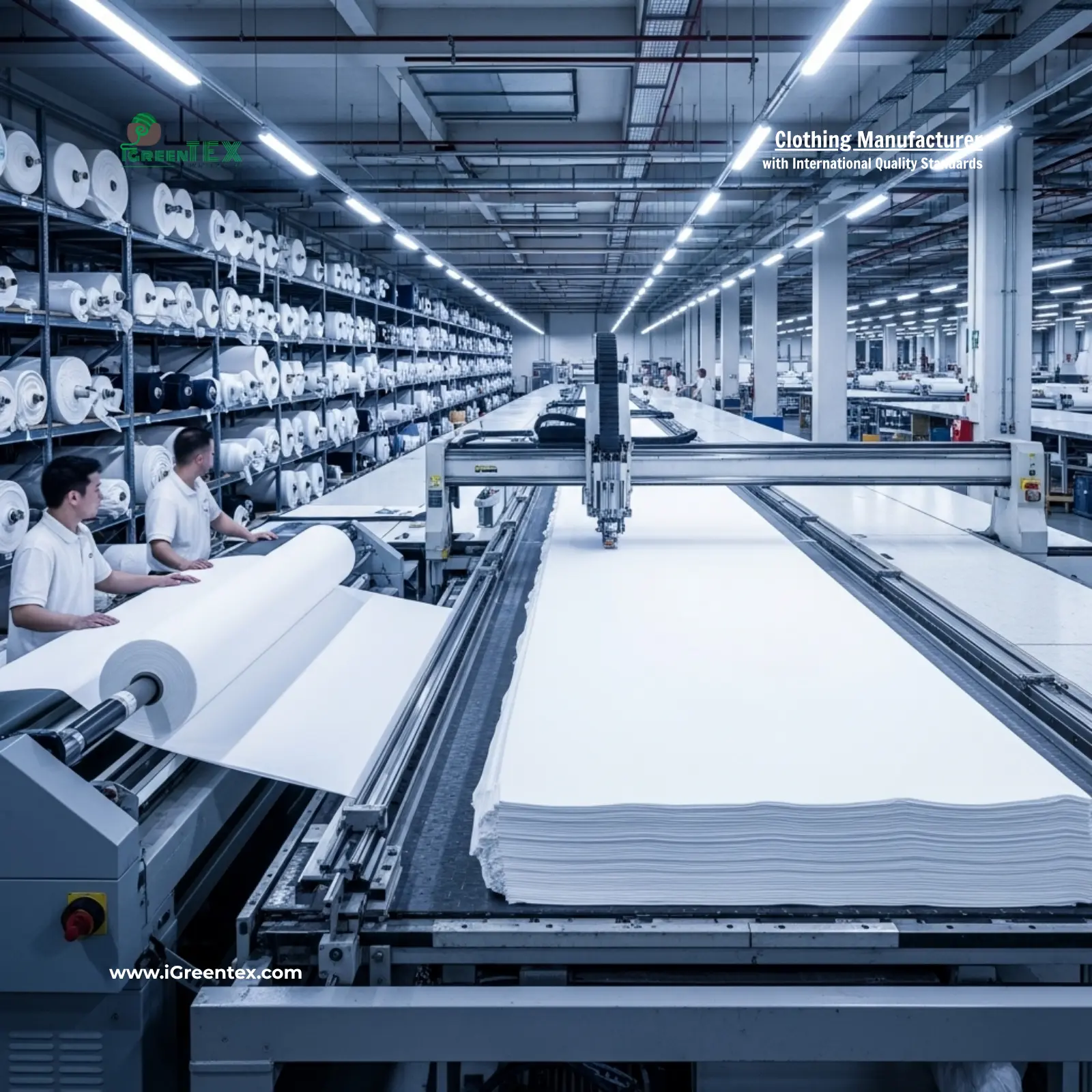
A professional knitwear manufacturer will demonstrate expertise in several key areas:
- Knit Fabric Types: They must understand the differences between various knit constructions. This includes Single Jersey, the most common and softest t-shirt fabric. It also includes Pique, the textured, breathable fabric used for polo shirts. Other types are Rib Knit, used for collars and cuffs, and French Terry, used for sweatshirts. Each fabric has a unique weight (measured in GSM, or grams per square meter), stretch, and feel. A good t-shirt factory will guide you on the best choice for your product’s desired fit, function, and price point.
- Handling and Cutting: Cutting knit fabrics is a highly skilled task. Because they stretch, any pulling or tension during the laying process can distort the pattern pieces. This leads to inconsistent sizing and a poor fit in the final garments. Professional factories use automated fabric spreaders that lay the fabric with zero tension. They also use CNC (Computer Numerical Control) cutting machines. These tools ensure that thousands of layers of fabric are cut with perfect precision every time. A facility that still cuts everything for bulk orders by hand is a major red flag. This is a critical detail in what makes a good t-shirt factory.
- Shrinkage Management: All knit fabrics shrink, especially cotton. A professional producer will know the typical shrinkage rate for different materials and blends. They will perform shrinkage tests on every new batch of fabric before cutting. They then adjust the patterns to account for this shrinkage. This ensures the final garment will fit correctly after the first time a customer washes it. A factory that does not have a clear, documented shrinkage testing protocol is not a professional partner. This expertise is a core part of what a t-shirt factory must offer to protect your brand from customer complaints and returns.
The Quality Truth: How a Factory Sees Quality in a Simple T-Shirt
How can you, as a brand owner, judge the quality of a t-shirt like a professional? A factory expert sees a story in every detail. By learning to see what they see, you can quickly assess the capability of a manufacturer. The quality of these small details reveals the discipline and skill of the entire production line. This is the final layer of understanding a t-shirt factory. This skill allows you to have more intelligent conversations with your manufacturing partners.
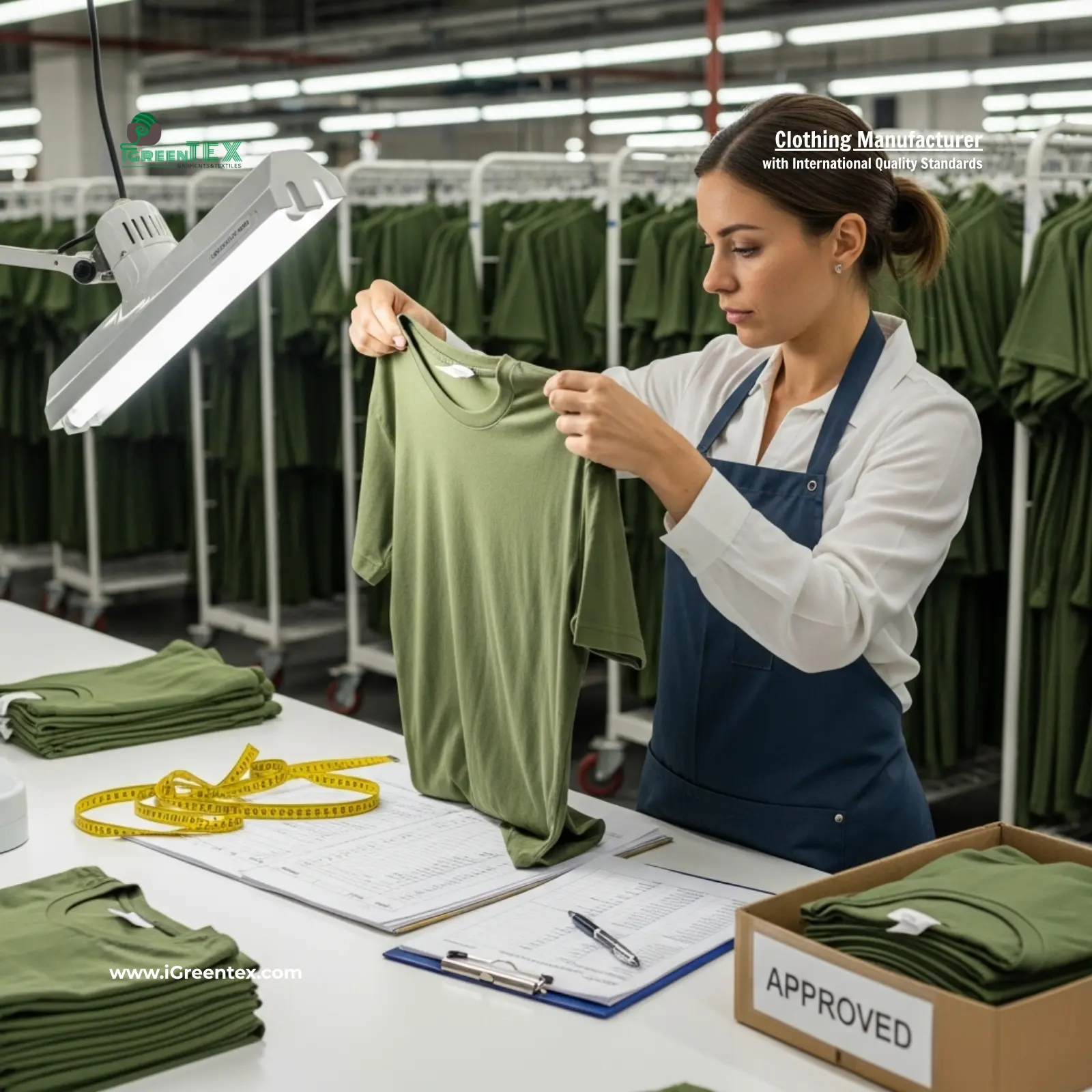
Here are four critical details to inspect on any t-shirt, from the perspective of a QC manager:
- The Collar / Neck Rib (The Ultimate Test):
The neck rib is the most difficult part of a t-shirt to construct perfectly. It must be stretched and applied with exactly the right tension. On a high-quality shirt, the collar will lie flat against the body. It will be perfectly round and smooth, with no waving or ripples (often called “bacon neck”). A wavy or uneven collar is the clearest sign of an unskilled operator or a poorly managed production line. This detail alone tells you a lot about what makes a good t-shirt factory. - Shoulder-to-Shoulder Taping (The Mark of Durability):
Look inside the t-shirt at the back of the neck. A high-quality shirt will have a strip of fabric sewn over the seam. This tape runs from shoulder to shoulder. This small detail serves a huge purpose. It covers a rough seam for comfort. More importantly, it provides structural support. It prevents the shoulders from stretching and losing their shape over time. The absence of this tape is a sign of cost-cutting. A quality-focused t-shirt factory will always recommend this feature for a premium product. - Side Seams (The Key to a Good Fit):
T-shirts are made in two ways: with side seams or as a “tubular” knit. Tubular t-shirts are faster and cheaper to make. However, they do not fit the human body well. They often twist after washing, a problem called “torquing.” A t-shirt with side seams is constructed from separate front and back panels. This allows for a more tailored, anatomical fit that drapes correctly. For a premium product, always look for side seams. This construction choice reveals a factory’s commitment to quality over speed. This is a crucial element in understanding what a t-shirt factoryprioritizes. - Stitch Quality and Consistency:
Look closely at the lines of stitching, especially at the hem and cuffs. Are the stitches neat, straight, and evenly spaced? A good standard is around 12-14 stitches per inch for a quality look and feel. Are there any loose threads or messy back-tacking at the end of the seams? This level of detail, or lack thereof, reveals the discipline of the operators and the standards set by the t-shirt factory management.
The Production Truth: A Simple T-Shirt’s Journey Through the Factory
We have discussed the machines, materials, and quality details. But how do these elements come together? A professional t-shirt factory operates like a symphony. Every step is carefully planned and executed in a specific sequence. Understanding this flow helps you appreciate the complexity behind a seemingly simple product. This is the operational reality of a modern t-shirt factory.
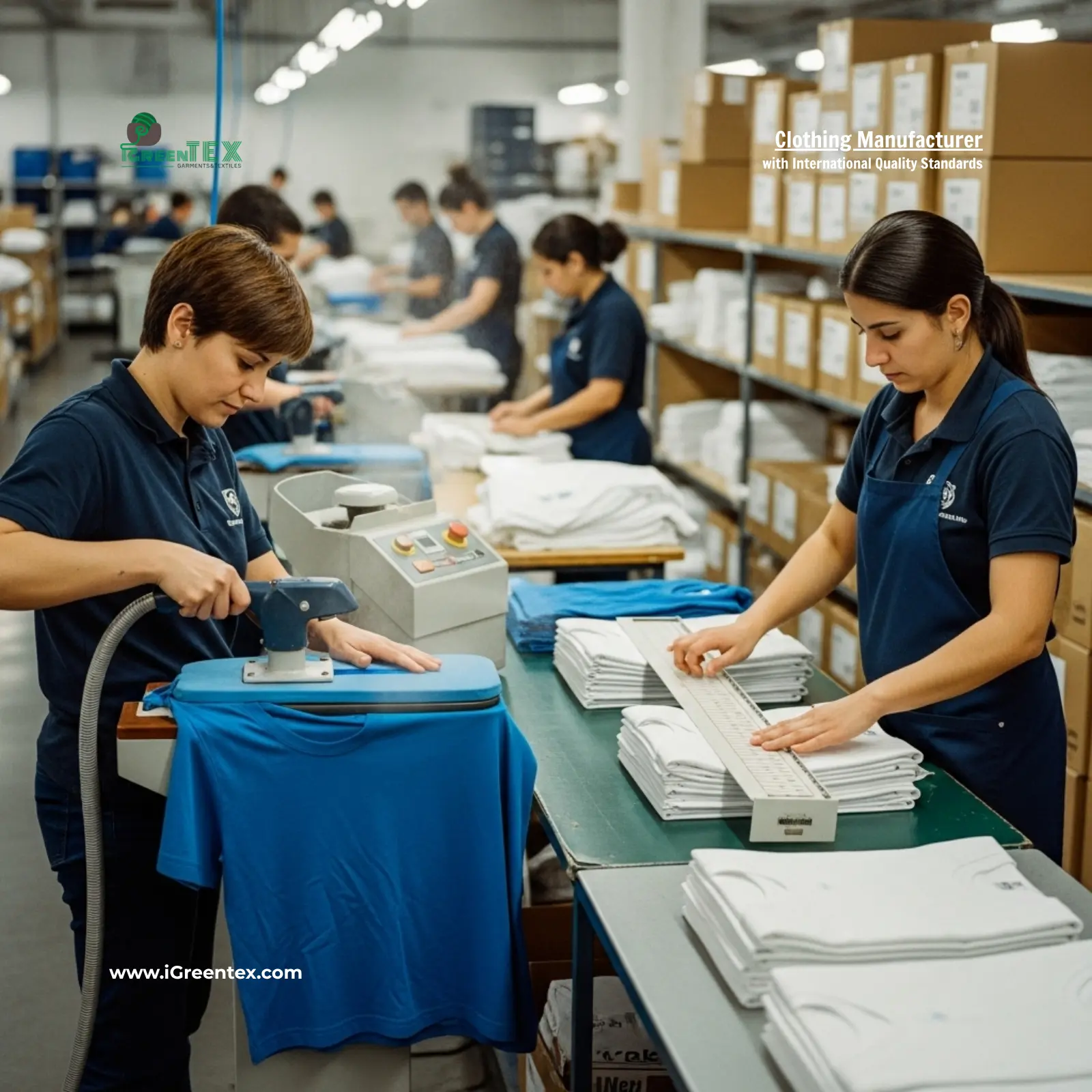
Here is a simplified step-by-step journey of a t-shirt through the production line:
- Fabric Inspection and Relaxation: Before any cutting happens, the fabric rolls are inspected. They are checked for defects like holes, stains, or color inconsistencies. The fabric is then “relaxed” by unrolling it and letting it sit for up to 24 hours. This step is crucial for knit fabrics. It allows them to return to their natural state, preventing shrinkage issues after cutting.
- Spreading and Cutting: The relaxed fabric is laid out in stacks, sometimes hundreds of layers high. An automated spreader ensures there is no tension. A CNC machine then cuts the pattern pieces with incredible precision. This process creates all the parts of the t-shirt: front, back, sleeves, and collar rib.
- The Progressive Bundle System (Sewing): The cut pieces are bundled together by size. They then move down the sewing line, or “chuyền.” Each operator performs a single, specialized task. The t-shirt is assembled in a specific order:
- Shoulders are joined.
- The collar rib is attached.
- Sleeves are attached to the body.
- Side seams are closed.
- Sleeve and body hems are finished.
This system ensures speed, consistency, and quality.
- Inline Quality Control: QC is not just a final step. Quality checkers are present on the line itself. They inspect the garments at various stages of assembly. This allows them to catch errors early, preventing hundreds of faulty units from being made.
- Finishing: After sewing, the t-shirts go to the finishing department. Here, loose threads are trimmed. The garments are ironed or steamed to have a clean presentation. They are then carefully folded.
- Final QC and Packing: Every single garment goes through a final quality check. It is inspected for any defects in sewing, fabric, or measurements. Once approved, it is packed into a polybag, and then into a carton box for shipment.
The Human Truth: Skill, Training, and Consistency
The machines are the tools, but the operators are the artisans. The skill of the human operator is what truly determines the final quality of a garment. This is especially true when working with knit fabrics. A key challenge is that knit fabric stretches during sewing if not handled correctly. An unskilled operator might pull or push the fabric through the machine. This creates tension, resulting in distorted, wavy seams.
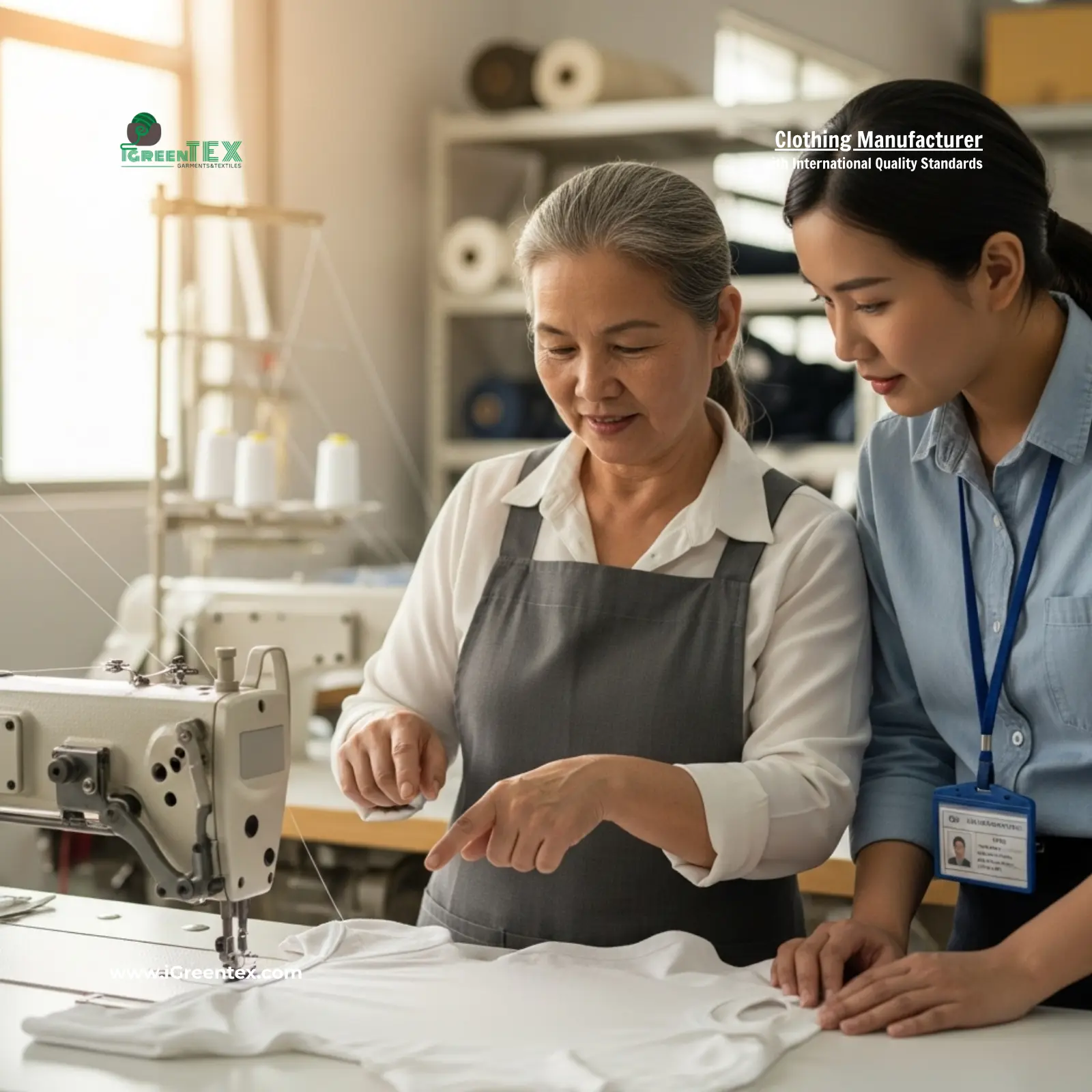
A professional t-shirt factory invests heavily in training to solve this problem. Their goal is to achieve perfect consistency from the first approved sample to the ten-thousandth unit in the shipment.
Here is how they do it:
- Operator Training on Tension Control: The most important skill is learning how to “feed” the fabric into the machine with neutral hands. The operator’s job is to guide the fabric, not force it. This requires hours of practice to develop the right touch. A good t-shirt factory will have a dedicated training line for new workers.
- Standard Operating Procedures (SOPs): Every sewing station has a visual guide. This guide shows the exact steps to perform the task, the required stitch quality, and the key things to check. This ensures that every operator performs the same task in the exact same way.
- From Sample to Bulk—The Knowledge Transfer: The process for ensuring consistency starts with the sample. The highly skilled sample room technicians who created the approved sample will then train the main production line leaders. They demonstrate the specific techniques required for the garment. This direct training is what translates the quality of a single sample to a bulk production run. A disciplined t-shirt factory never skips this step.
The Value-Add Truth: Decoration and the 80/20 Rule
A t-shirt is a blank canvas. Beyond cutting and sewing, a t-shirt factory can often provide decoration services to bring your design to life. These services can include:
- Screen Printing: Applying ink through a mesh screen, ideal for bold graphics.
- Embroidery: Stitching a design onto the fabric with thread for a premium look.
- Heat Transfer: Applying a pre-printed design using heat and pressure.
- DTG (Direct-to-Garment): A digital printing method, like an inkjet printer for fabric, ideal for complex, multi-color images.
However, here lies another surprising truth, which can be explained by the 80/20 rule (The Pareto Principle). The core competency of a true t-shirt factory—their “80%”—is cutting and sewing knit fabric. This is what they must master in-house. High-volume, complex decoration is often a separate specialty.
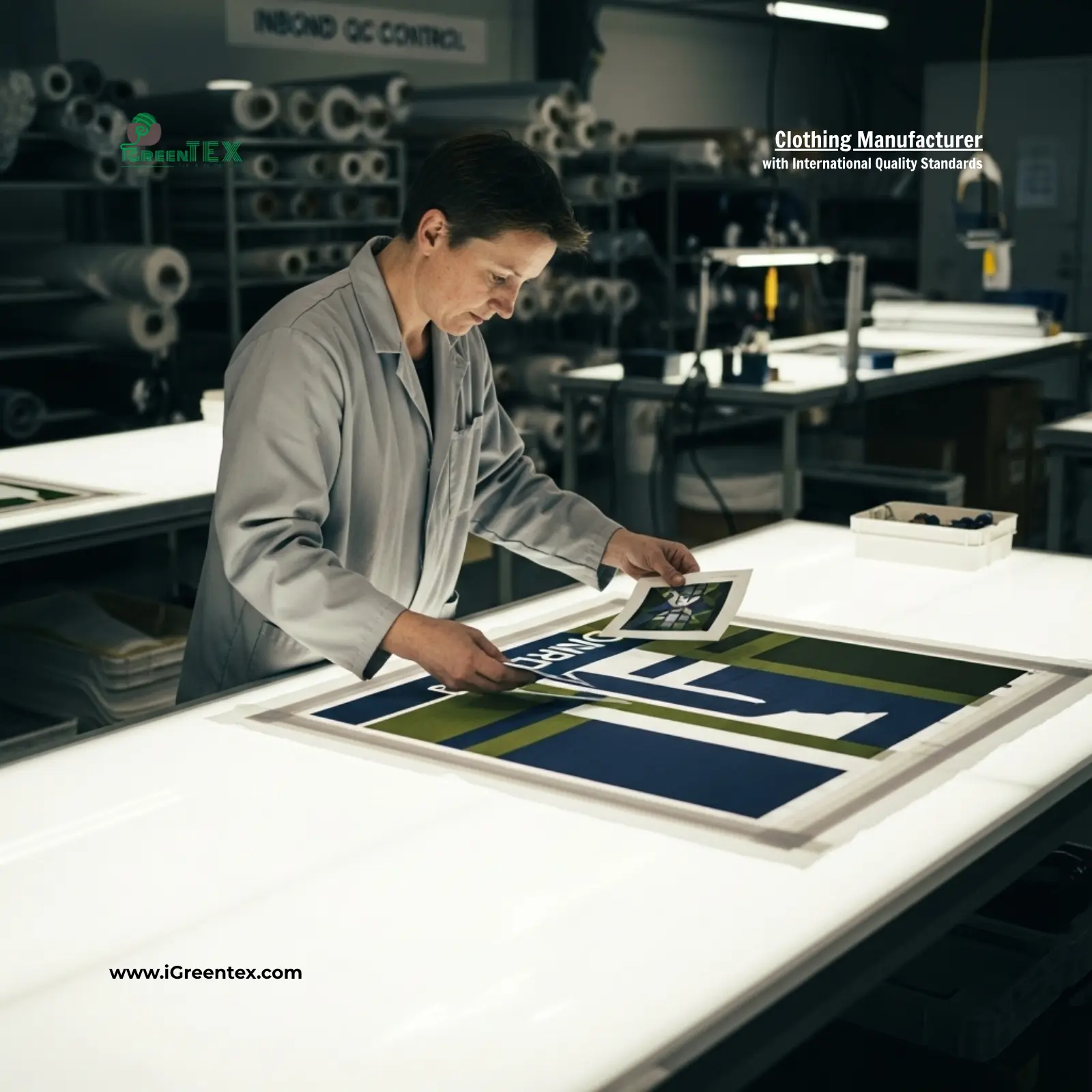
Many of the best factories choose to outsource this “20%” to trusted, specialized partners. A high-volume screen-printing facility is as specialized as a sewing factory. They have different machinery, skills, and expertise. A great t-shirt factory does not try to be an expert in everything. Instead, they build a network of expert partners and manage the quality for you.
How do they control the quality of outsourced work?
- Vetted Partners: They only work with a small list of printing or embroidery houses that they have tested and audited for quality and reliability.
- Inbound QC: The printed or embroidered cut panels are sent back to the t-shirt factory for a full quality inspection before they are sewn. This ensures any errors are caught early.
- Full Responsibility: The t-shirt factory takes 100% responsibility for the final quality of the garment, including the outsourced decoration.
The Verification Truth: Certifications That Matter
How can you verify that a t-shirt factory truly operates with the professionalism we have described? This is where third-party certifications become important. These are not just logos to put on a website. They are proof that a factory has been audited and meets a specific global standard. For US brand owners, three types of certifications are particularly important.
- For the Process (Quality Management System): ISO 9001
This certification proves that a factory has a well-documented and consistently followed Quality Management System. It shows they are organized, process-driven, and committed to continuous improvement. It is a sign of a professionally managed t-shirt factory. - For the People (Social and Ethical Compliance): WRAP or BSCI
WRAP (Worldwide Responsible Accredited Production) is a highly respected certification. It ensures that a factory treats its workers ethically and operates in a safe and humane environment. This is critical for protecting your brand’s reputation and meeting the expectations of modern consumers. A WRAP-certified t-shirt factory is a responsible partner. - For the Product (Material Safety): OEKO-TEX STANDARD 100
This certification ensures that every component of the garment—from the fabric to the thread and buttons—has been tested for harmful substances. An OEKO-TEX certified product is safe for human skin. This is a powerful mark of quality and safety that you can communicate to your customers.
Conclusion: Are You Looking for a Factory, or a Partner?
We have now moved far beyond the simple definition. A true t-shirt factory is not just a building with sewing machines. It is a specialized ecosystem. It is defined by its investment in specific machinery like overlock and coverstitch machines. It is defined by its deep, practical knowledge of knit fabrics. It is defined by an operational process engineered for stretch and precision. This knowledge helps you understand what defines a professional t-shirt factory. It shows that a real manufacturing facility for t-shirts is a center of specialized skill.
But the final, most important truth is this. The best manufacturers are more than just factories; they are partners. They do not just take your orders. They provide advice on the best materials to use. They identify potential risks in your designs before production starts. They have a culture of quality that is visible in every stitch. The final question is not, “What is a t-shirt factory?” The real question is, “Who is the right t-shirt manufacturing partner for my brand?” This is the question that leads to long-term success. Understanding what makes a good t-shirt factory is the key.
Ready to discuss the technical details of your t-shirt project?
You now have the insider knowledge to vet a potential manufacturer. If you want to discuss the specifics of your project with experts who understand this entire ecosystem, we are here to help. Contact the specialists at iGreen Tex for a professional consultation. We operate as more than just a t-shirt factory; we are your production partner.
About iGreen Tex Vietnam
iGreen Tex Vietnam is a trusted fashion and textile manufacturer based in Vietnam, specializing in high-quality sportswear and casual apparel for global markets. We provide OEM manufacturing services, supporting brands to design, develop, and produce customized garments that meet international quality standards.
Our production focuses on sustainability and eco-friendly practices, using certified fabrics and advanced techniques to reduce environmental impact. From material sourcing to final inspection, every stage of manufacturing follows strict quality control processes to ensure flawless results. With years of experience in Vietnam sportswear manufacturing, we understand the demands of global clients and changing fashion trends.
Our factory operates with modern equipment and a dedicated team to deliver products on time and at competitive pricing. Partnering with iGreen Tex means working with a reliable supplier who combines innovation, quality, and responsibility. We help your brand scale effectively by producing garments that resonate with today’s conscious consumers worldwide.
If you want to read more information about canvas bags, and if you want to tote bags at Ho Chi Minh City, you can see it here!!!
To view product information click here
Visit our website to learn more about our products and services: IGREEN TEX
IGREEN TEX VIETNAM CO LTD
Address: No. 6 – 6A, D52 Street, Bay Hien Ward, Ho Chi Minh City, Vietnam
E-mail: Info@iGreentex.com
WhatsApp/Viber/Zalo: +84 (0) 938.045.900
